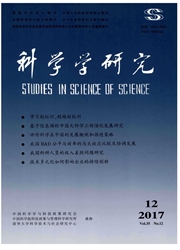

 中文摘要:
中文摘要:
先前关于专利许可策略的研究一般假设专利权人具有完全讨价还价能力,被许可方只能“接受或拒绝”专利许可契约,未考虑被许可方技术能力的动态演化。文章基于完全对称信息以及单一先动者和单一后来者双寡头市场假设,从技术能力演化视角,研究后来者在技术引进、技术模仿、技术创新等技术能力发展过程中的专利许可策略。研究表明:技术引进阶段,在给定条件下,后来者采用提成许可方式和固定费用许可方式优于放弃该专利;技术模仿阶段,后来者可通过降低自行研发的成本来提高讨价还价能力;技术创新阶段,交叉许可是后来者降低交易成本获取专利的重要方式。
 英文摘要:
英文摘要:
It was assumed that the patent licensor had completely bargaining power, and the patent licensee had no choices but accepting or rejecting patent licensing contract in the previous research. The dynamic evolution of technological capability of the licensee was not considered. Our article studies the late comer' s strategies of patent licensing at the different stages of technological development, e. g introduction, imitation and innovation. Our research indicates that ( 1 ) the late comer accepts a single royalty license or a single fixed license better than gives up the patent at the introduction stage ; (2) the late comer could reduce the cost of independent research to improve the bargaining power at the imitation stage ; ( 3 ) the cross license is a significant way to reduce transaction cost of the patent licensing at the innovation stage.
 同期刊论文项目
同期刊论文项目
 同项目期刊论文
同项目期刊论文
 期刊信息
期刊信息
